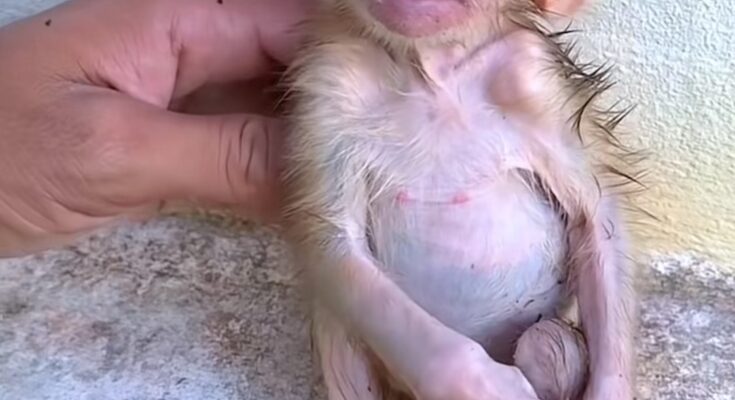Protecting the health of newborn monkeys is essential, especially in environments such as rescue centers, primate sanctuaries, research facilities, or wildlife rehabilitation programs. Among the most common health issues affecting infant primates are eye infections, which can quickly escalate if not managed properly. Because newborn monkeys have delicate immune systems and are still adapting to their surroundings, proactive care and hygiene are crucial. Below are helpful tips to prevent newborn monkeys from contracting eye diseases and to ensure they grow strong and healthy.
1. Maintain a Clean and Sterile Environment
Sanitation is the first and most effective step in preventing infections. Newborn monkeys spend most of their time in nests, incubators, or enclosures, and any buildup of bacteria or dust can irritate their eyes or lead to infections.
-
Clean bedding daily and replace soiled materials.
-
Use mild, animal-safe disinfectants.
-
Ensure enclosures are kept dry and free from mold or fungal growth.
A consistently clean environment reduces exposure to harmful microorganisms that can cause conjunctivitis or other eye conditions.
2. Practice Proper Handling Hygiene
Human caregivers can unintentionally transfer germs to newborn monkeys. Because their eyes are extremely sensitive, proper hygiene is non-negotiable.
-
Wash hands thoroughly before and after handling infants.
-
Wear gloves when necessary, especially if treating or feeding.
-
Avoid touching their eyes unless performing a health check.
Reducing contact with contaminants significantly lowers the risk of infection.
3. Monitor for Early Signs of Irritation
Early detection is key. Newborn monkeys may not show obvious symptoms, so regular observation helps catch problems early.
Watch for signs such as:
-
Redness or swelling around the eyelids
-
Excessive tearing or discharge
-
Frequent rubbing or sensitivity to light
Spotting symptoms early allows for rapid treatment before the condition worsens.
4. Provide Proper Nutrition for a Strong Immune System
Just like human infants, newborn monkeys rely heavily on nutrition for immune development.
-
Ensure they receive adequate maternal milk or properly formulated milk substitutes.
-
Supplement with vitamins recommended by a veterinarian, particularly Vitamin A, which supports eye health.
-
Avoid overfeeding, which may cause digestive issues that weaken immunity.
Healthy infants are more resistant to infections and heal faster if exposed.
5. Minimize Exposure to Irritants
Environmental irritants can easily lead to eye issues in young primates.
Common irritants include:
-
Smoke
-
Strong cleaning chemicals
-
Dust and dry bedding materials
Keep their living area well-ventilated and free from harsh odors or particles that can irritate their eyes.
6. Schedule Regular Veterinary Checks
Consistent veterinary care ensures any potential eye problems are identified and addressed early.
-
Schedule routine eye examinations for newborns.
-
Follow vaccination and deworming guidelines.
-
Seek veterinary help immediately if symptoms appear.
Professional oversight is invaluable in preventing serious infections.
Conclusion
Preventing eye disease in newborn monkeys requires a combination of hygiene, proper nutrition, vigilant observation, and expert care. By maintaining a clean environment, practicing good handling habits, monitoring for early symptoms, and providing professional veterinary support, caregivers can significantly reduce the risk of eye infections. Healthy eyes are a crucial part of a newborn monkey’s overall well-being, helping them grow, learn, and thrive in a safe environment.



